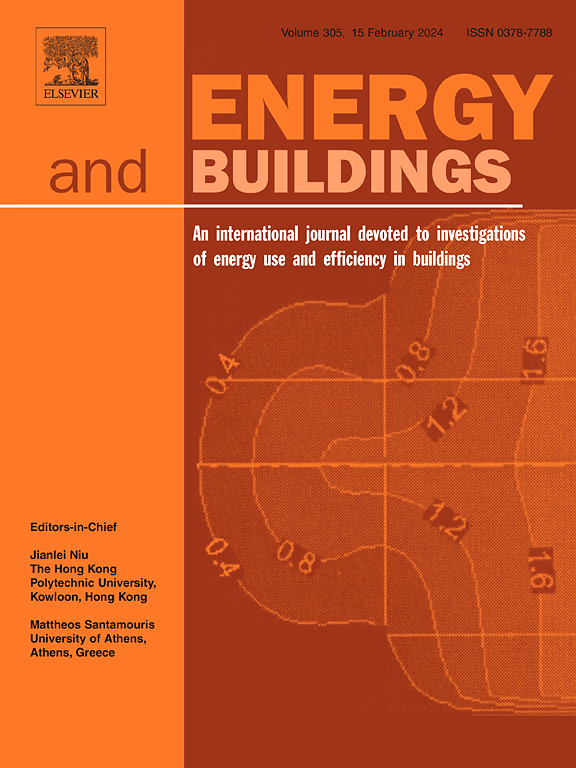交易型能源社区中激励专业消费者社会合作的进化博弈
IF 6.6
2区 工程技术
Q1 CONSTRUCTION & BUILDING TECHNOLOGY
引用次数: 0
摘要
交易型能源社区为智能电网向可再生能源过渡提供了巨大潜力。然而,它们通常依赖于消费者之间的固定交易合同,这限制了灵活性和参与度。人们已经对交易型能源社区的实施机制进行了广泛的研究,但对消费者的交易行为及其在点对点交易中的社会合作的关注仍然有限。在这项工作中,我们正在探索进化博弈论的潜力,以模拟社区准消费者的交易行为随时间的演变,目的是定义一种促进基于社会合作的点对点互动的区块链市场机制。该模型受鹰鸽博弈的启发,激励消费者的合作行为(鸽子),惩罚以自我为中心的交易行为(鹰),促进社会合作,尽管叛逃会带来更高的回报。在交易中,"鸽子 "避免冲突,乐于合作,而 "鹰 "则不然。在市场交易过程中,如果两个 prosumers 都选择鹰式交易策略,他们就会受到较高交易成本的惩罚。如果一方选择鹰,另一方选择鸽,则鹰获得所有利益,鸽则一无所获。如果两个人都选择鸽子,那么他们会平分利益。我们通过一个基于区块链的能源市场评估了该解决方案的有效性,考虑到了使用来自能源消费商的能源数据的现实场景。结果表明,在 P2P 能源交易中,相匹配的准消费者会逐渐转向利他行为。此外,在市场会话结束时,超过 92% 的交易涉及利他行为,因此有效地激励了消费者改变其行为。此外,在 "利他主义者 "合作交易行为的推动下,市场交易时段的能源交易量最多可大幅增加 50%,从而释放出更高水平的能源灵活性。最后,它在交易能源价格方面比市场清算机制高出 3%。本文章由计算机程序翻译,如有差异,请以英文原文为准。
Evolutionary game for incentivizing social cooperation of prosumers in transactive energy communities
Transactive energy communities offer significant potential for the smart grid’s transition to renewable energy. However, they typically rely on fixed trading contracts between prosumers, which limits flexibility and engagement. Extensive research has been conducted on the mechanisms for implementing transactive energy communities, but there is still limited focus on prosumers’ trading behaviours and their social cooperation in peer-to-peer trading. In this work, we are exploring the potential of evolutionary game theory for modelling the evolution of trading behaviours among community prosumers over time aiming to define a blockchain market mechanism that promotes social cooperation-based P2P interactions. The model, inspired by the Hawk-Dove game, incentivizes prosumers’ cooperative behaviours (Doves) and penalizes prosumers with self-centred trading behaviours (Hawks), fostering social cooperation despite the temptation of higher payoffs from defection. In trading, Doves avoid conflicts and are open to cooperation, while Hawks are not. During a market session, if both prosumers choose the Hawk trading strategy, they are penalized with higher trading costs. If one chooses the Hawk and the other Dove, the Hawk gains all the benefits, and the Dove gains nothing. If both choose Dove, they share the benefits equally. We have evaluated the effectiveness of the solution with a blockchain-based energy marketplace considering realistic scenarios using energy data from prosumers. Results suggest that matched pairs of prosumers in P2P energy transactions gradually shift towards altruistic behaviours. Additionally, at the end of the market session, over 92% of the transactions involve altruistic behaviours, therefore, the prosumers are effectively incentivized to change their behaviour. Moreover, it may significantly increase traded energy in market sessions by up to 50% driven by cooperative trading behaviours of prosumers which unlock higher levels of energy flexibility. Finally, it outperforms the market clearing mechanism in transactions energy prices by up to 3%.
求助全文
通过发布文献求助,成功后即可免费获取论文全文。
去求助
来源期刊

Energy and Buildings
工程技术-工程:土木
CiteScore
12.70
自引率
11.90%
发文量
863
审稿时长
38 days
期刊介绍:
An international journal devoted to investigations of energy use and efficiency in buildings
Energy and Buildings is an international journal publishing articles with explicit links to energy use in buildings. The aim is to present new research results, and new proven practice aimed at reducing the energy needs of a building and improving indoor environment quality.
 求助内容:
求助内容: 应助结果提醒方式:
应助结果提醒方式:


